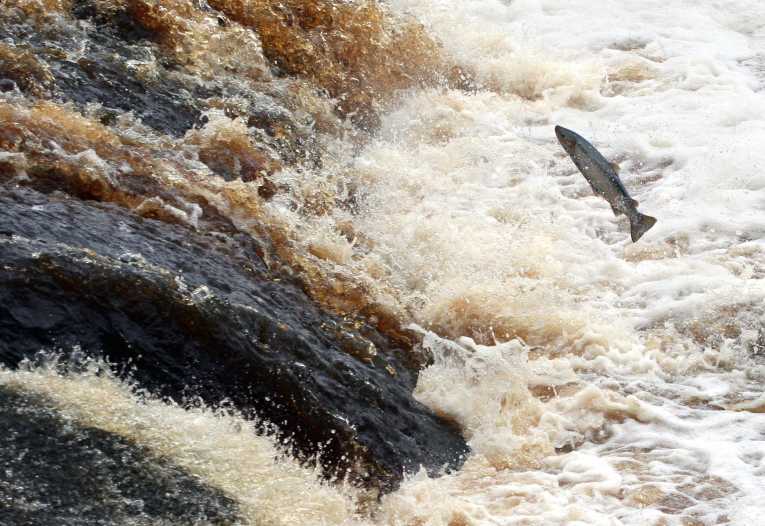A United States government agency has been found guilty by a court of failing to protect an endangered salmon species adequately.
The National Oceanic and Atmospheric Administration (NOAA) Fisheries Service was told by Judge James Redden in a US District Court in Portland Oregon that its plans to protect the Columbia-Snake River salmon from extinction were not good enough.
Fishing and conservation groups, the state of Oregon, the Nez Perce Tribe, and the Spokane Tribe reacted with delight to the decision.
"Today is a victory for the nation," said Trip Van Noppen, President of Earthjustice, the public interest law firm that represented fishing and conservation groups in the case. He called for action on four dams which he says 'strangle' the lower Snake River, and have contributed to a fall in the salmon's numbers to just 1 percent of their historic levels.
The court wrote: "Coupled with the significant uncertainty surrounding the reliability of NOAA Fisheries' habitat methodologies, the evidence that habitat actions are falling behind schedule, and that benefits are not accruing as promised, NOAA Fisheries' approach to these issues is neither cautious nor rational."
Zeke Grader, Executive Director of Pacific Coast Federation of Fishermen's Associations (PCFFA) called on the Obama administration to take action. "As this ruling highlights, the federal government has spent nearly 20 years spending enormous sums of money foolishly by doing all the wrong stuff," he said. "Facing the problem squarely, including potential removal of the four fish-killing dams on the lower Snake River, will create many thousands more jobs, revive the fishing industry, save billions of dollars for taxpayers, and lead in the development of clean, renewable, more efficient energy. What we need most now is for this Administration to lead us to those solutions, not just bury its head in the sand in denial as has so often happened in the past."
The Snake River salmon migrate more than 900 miles and climb almost 7,000 feet to reach their spawning grounds. Eight dams block their path. Climate change is likely to put further pressure on the species conservationists argue.
"We applaud the court for keeping a solid eye on the science and the law," said Sierra Club Executive Director, Michael Brune. "The cool, high elevation wilderness watersheds of Central Idaho, Southeast Washington, and Northeast Oregon are a virtual Noah's Ark for salmon and steelhead in a climate changing world."
Top Image: Leaping salmon - Credit: © Sue Colvil










